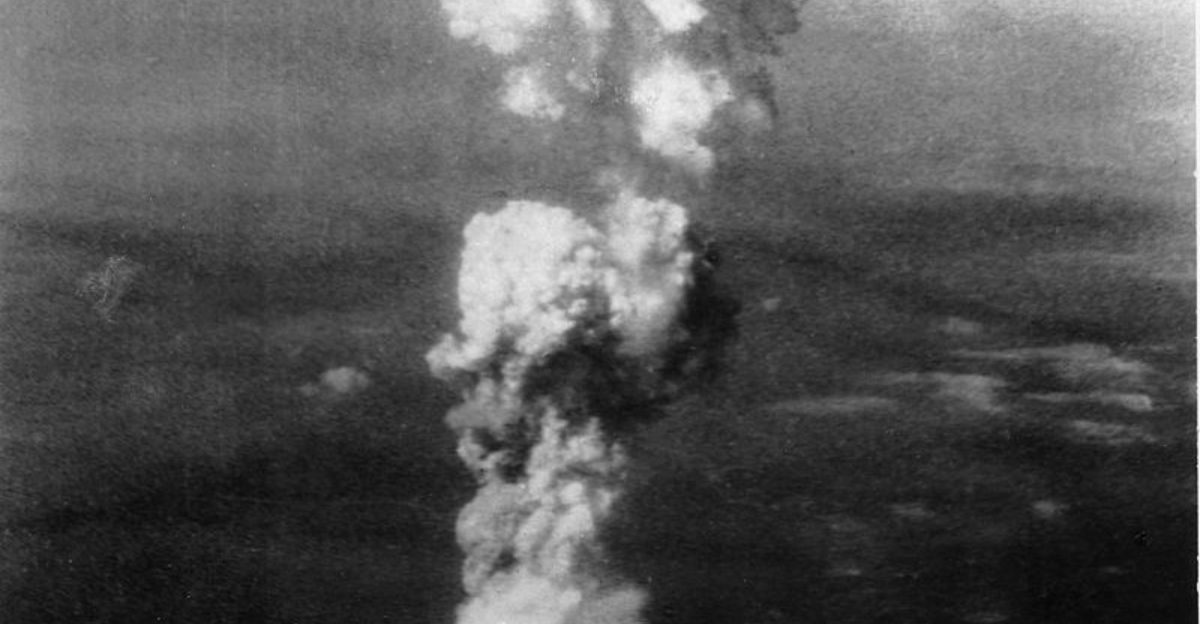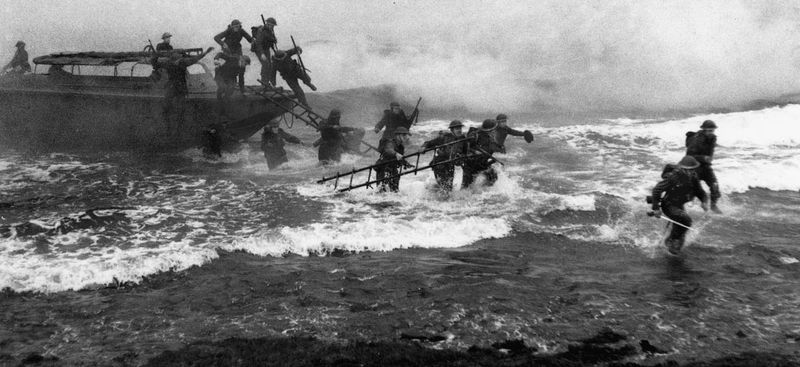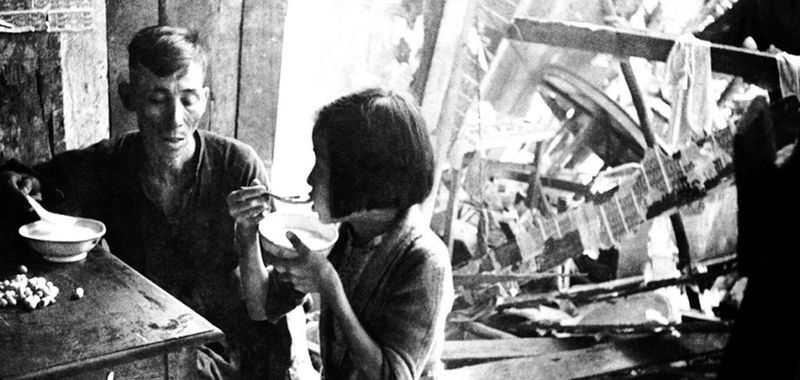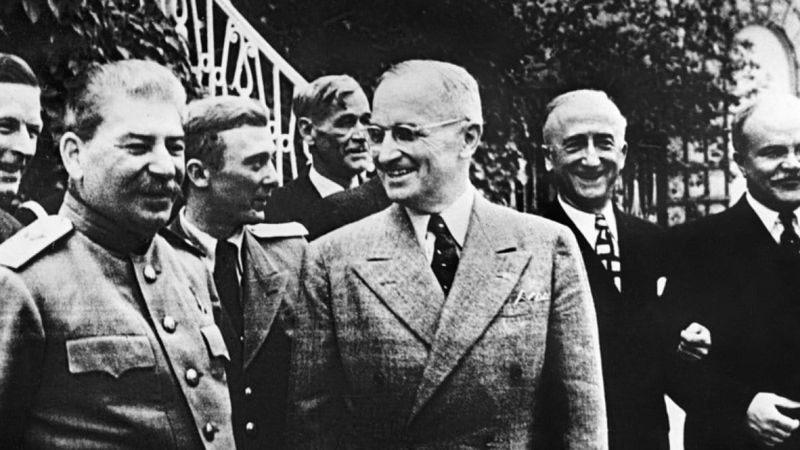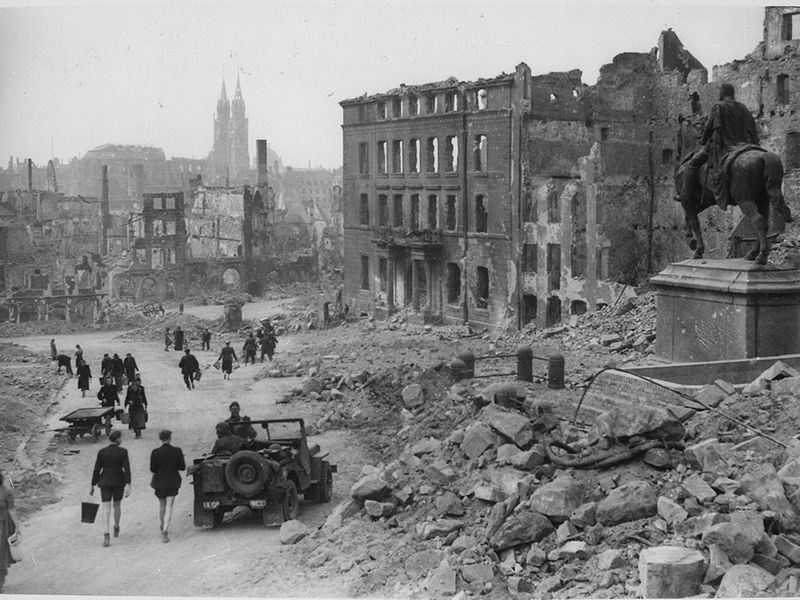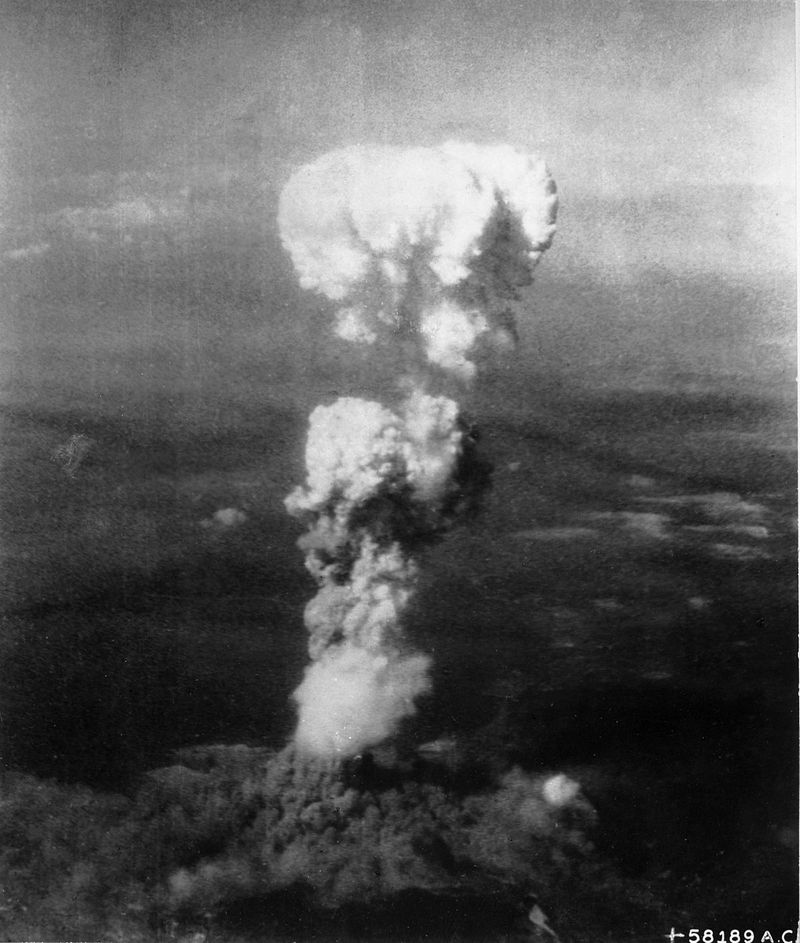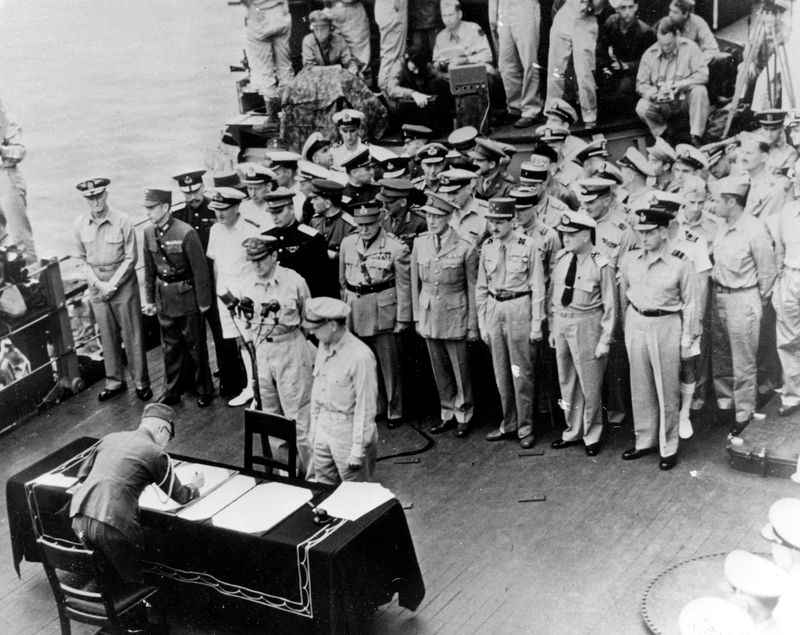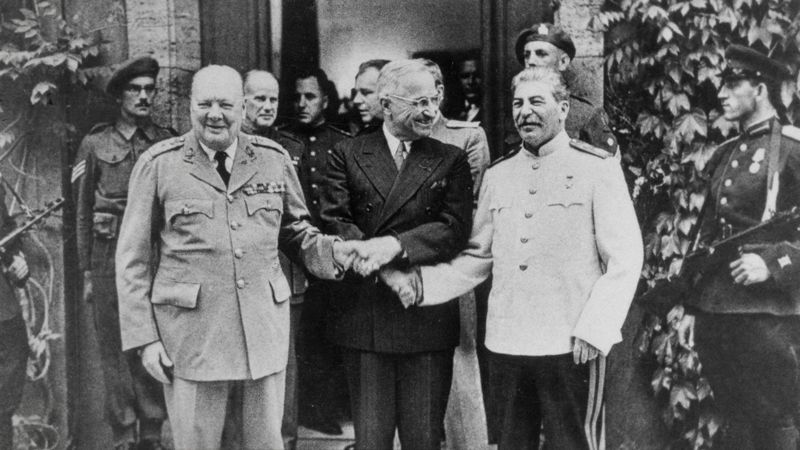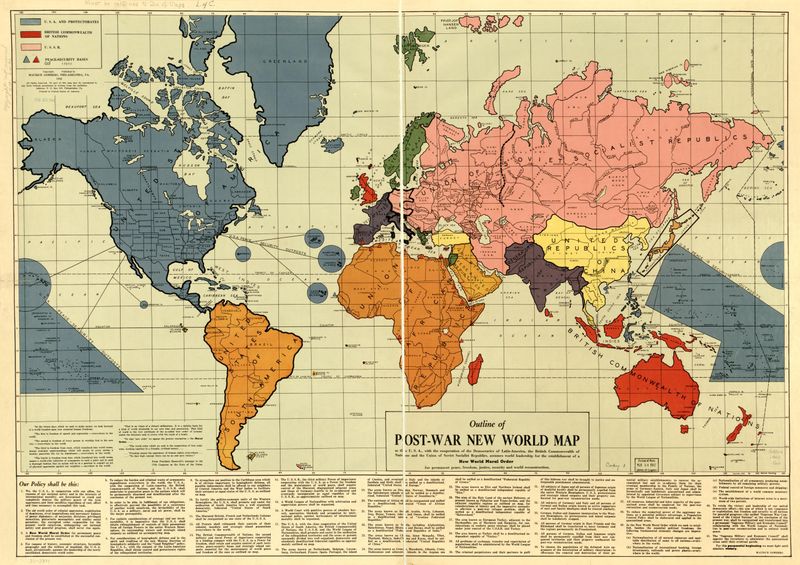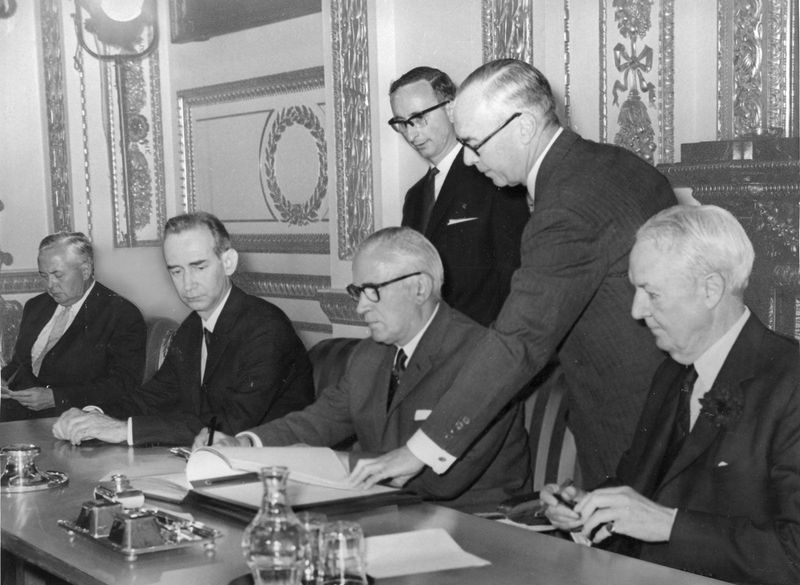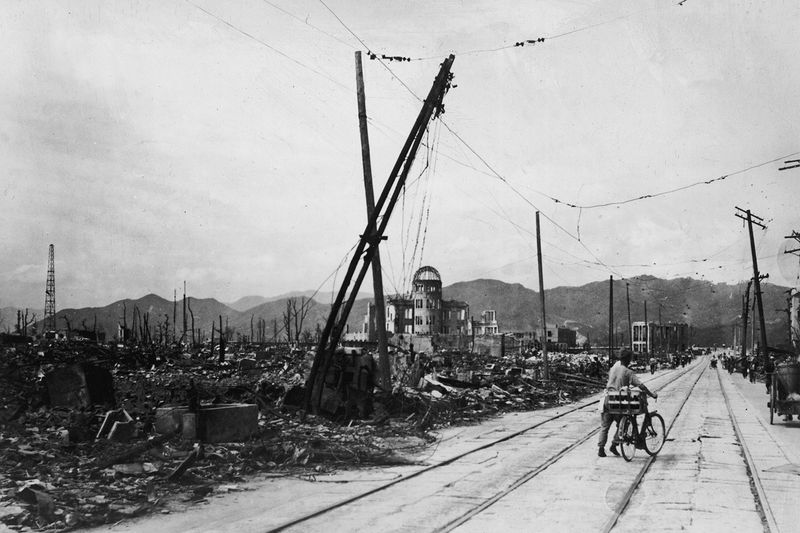Imagine a world where the atomic bomb was never dropped on Hiroshima and Nagasaki. The ramifications on global history, politics, and society could have been profound.
Through this lens, we explore ten compelling scenarios that might have unfolded in the absence of these pivotal events.
Each possibility paints a vivid picture of a world shaped by different decisions and outcomes, inviting us to ponder how our present society might differ if the past had taken another path.
Let’s delve into these alternate realities and discover how they might have changed the course of history.
1. Operation Downfall: The Invasion That Could Have Been a Bloodbath
Without the atomic bomb, the U.S. and Allied forces would have launched Operation Downfall, a massive ground invasion of Japan. The invasion was expected to be a brutal and bloody affair. Casualty estimates reached up to 1 million Americans and even more Japanese. This would have included both military personnel and civilians. The scale and ferocity of this conflict could have marked one of the bloodiest chapters of the 20th century.
This alternative scenario suggests not only a prolonged and devastating battle but also a reshaping of post-war geopolitics. The impact on both nations could have been profound and lasting.
2. Prolonged War and Civilian Starvation
Japan’s military leadership had no plans for unconditional surrender. Without the atomic bombings, the war could have dragged on. This prolonged conflict would have led to massive civilian starvation due to resource shortages and ongoing blockades. Additionally, continued firebombing of cities would have further devastated infrastructure and morale.
The Japanese population would have faced years of extended suffering. The human cost of such a drawn-out war would have been immense, leaving deep scars on the nation’s psyche and landscape.
3. Soviet Occupation of Northern Japan
With the Soviet Union poised to invade from the north, an unyielding Japan might have faced division. Imagine a split akin to Korea, with a communist North Japan and a capitalist South Japan. The cultural and political landscape of Japan would have been forever altered.
Such an occupation could have intensified Cold War tensions and drastically shifted the balance of power in Asia. The ripple effects of this division might have been felt throughout the region, influencing global alliances and conflicts.
4. No Immediate End to WWII
What if WWII didn’t end in August 1945? The conflict might have extended into 1946 or beyond, consuming more resources and lives. This could have intensified global instability, with nations exhausted from prolonged warfare.
The longer the conflict dragged on, the greater the impact on international relations. Economic recovery and rebuilding efforts would have stalled, affecting generations. The shadow of uncertainty would have loomed large over much of the world, delaying the dawn of the post-war era.
5. Nuclear Weapons Still Developed… But Used Later
Even if the bombs weren’t dropped in 1945, nuclear weapons might have still emerged later. Perhaps during another conflict, like Korea or Vietnam. The nuclear age would begin, but unpredictably.
This delay might have altered how nations approached atomic diplomacy and conflict resolution. The moral and ethical implications of nuclear warfare would be revisited, possibly influencing international treaties and arms control differently than in our timeline.
6. Japan Surrenders… But on Different Terms
Without Hiroshima and Nagasaki’s shock, Japan might have negotiated a conditional surrender. This could have allowed the emperor to retain power, altering post-war dynamics in Asia.
Such a scenario might have led to a different U.S. influence in the region. The terms of surrender could have affected how Japan rebuilt and redefined itself in the global community. The political landscape of Asia might have shifted, creating new alliances and rivalries.
7. The Cold War Could Have Started Differently—Or Sooner
Without a dramatic display of U.S. nuclear capability, the balance with the Soviet Union might have shifted. Stalin could have been emboldened, possibly altering the Cold War’s start and trajectory.
The geopolitical landscape would have evolved differently, affecting global alliances. The absence of a clear nuclear deterrent might have led to an earlier and more volatile Cold War period. The strategies and decisions during this era would have reshaped international politics.
8. No Instant Superpower Status for the U.S.
The atomic bomb gave the U.S. an unchallenged edge after the war. Without its use, the U.S. might not have emerged as the dominant superpower. This could have allowed Soviet influence to expand more rapidly and widely.
The global power dynamics would have been altered significantly, with potential shifts in political and economic alliances. The absence of immediate U.S. dominance might have reshaped the post-war order, influencing how nations interacted and cooperated on the world stage.
9. Nuclear Weapons Might Have Been Even More Taboo
If nuclear bombs had never been used, they might have remained theoretical or been banned internationally. This could have changed modern warfare and global security.
The perception of nuclear weapons as ultimate deterrents might have shifted, influencing defense policies. International efforts towards disarmament and non-proliferation might have taken a different path, potentially fostering a world less reliant on nuclear capabilities.
10. The Moral Debate Would Be Very Different
Today’s ethical debates on Hiroshima and Nagasaki might not exist. Instead, the focus could be on the massive casualties from a prolonged war. This would raise questions about whether the bomb might have saved lives.
The moral landscape surrounding war and peace would be different. Discussions might center on alternative strategies and the lesser-known paths of history. This reflection could lead to new insights into the ethical dimensions of warfare.
